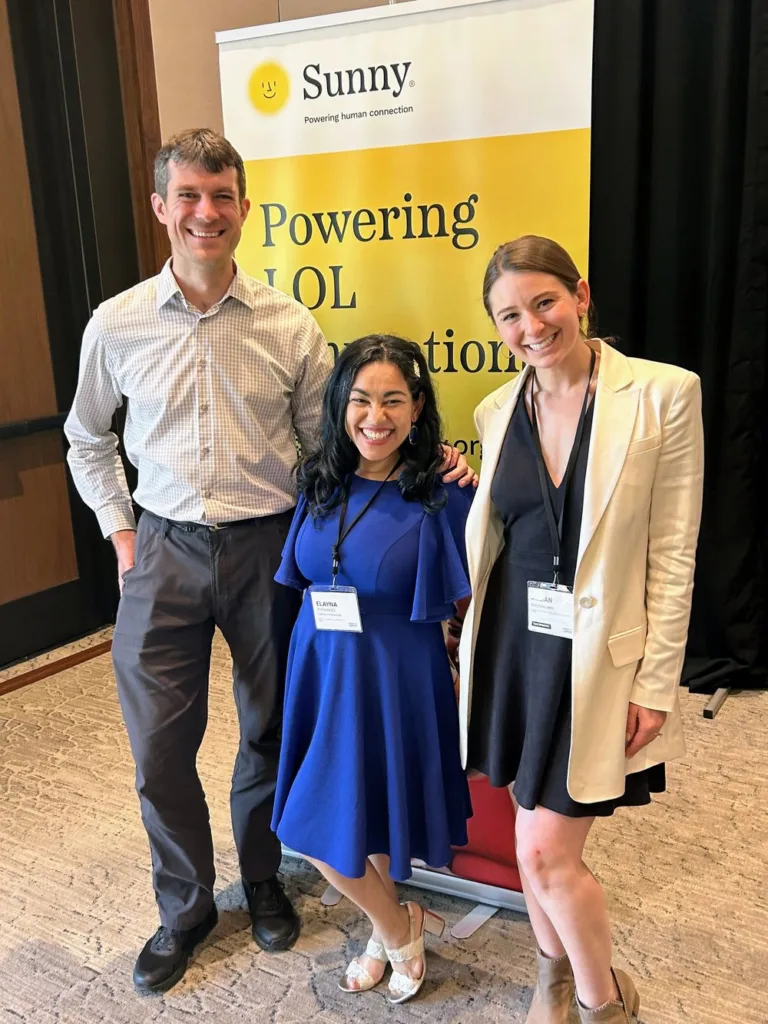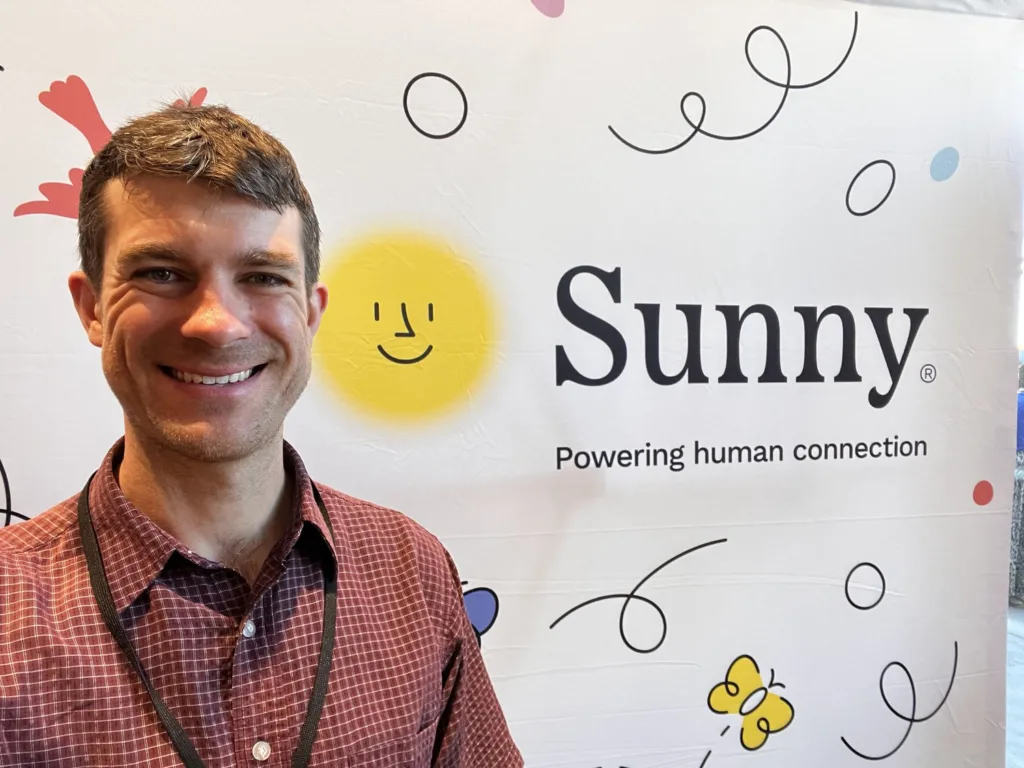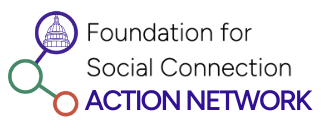What can we learn about connection from some of the world’s most connected moms? I joined with Jillian Racoosin and Elayna Fernandez at the Mom 2.0 summit earlier this year to find out. I attended in my role as social connection science lead at Sunny, the nonprofit initiative helping people build meaningful relationships.
What we learned
Mom 2.0 was an incredible three-day event, billed as North America’s #1 community of parenting influencers. Surprisingly, amid a packed summit schedule, the deepest, most heartfelt topics centered on loneliness and social isolation.
From the opening keynote by Jen Hatmaker to our panel sessions and the hundreds of conversations the Sunny team had with attendees, we discovered this audience of super-powered influencers and entrepreneurs was hungry for conversation about building supportive relationships. Story after (sometimes tearful) story emphasized themes of how disconnected this community and its vast online audiences can feel:
The influencer life can be very lonely. Thousands of followers and online connections are no guarantee of a social support for more serious, real-world struggles. And social isolation is right there in the term “solo-preneur.” Much of the daily work in this profession is a solitary endeavor.
Moms are often isolated and feel the pain experienced by their older kids. Some of the most tender concerns about loneliness centered on how kids, especially older youth and young adults, are navigating social connections. This is no surprise: Gen Z is currently the loneliest generation, with more than 80% of Gen Z workers showing measurable loneliness compared to about 70% of Millenial and 50% of Baby Boomer workers (Cigna, 2020).
But connecting for the benefit of others can be motivating. Many moms are stretched so thin and are focused on caring for others that it becomes hard to justify doing something emotionally uplifting “for yourself”—like tending to your friendships and other important relationships. Of course, I believe we should prioritize spending time with people who lift us up and make us feel alive, even if the benefits stop with the individual. However, we discovered a powerful secondary motivation: connecting because it sets a good example for others, particularly our kids. Behavior modeling is a fundamental mechanic of how humans learn skills and values. When we normalize upholding our own social well-being, we make it easier for others to do that as well.
In a more lighthearted exercise at the Mom 2.0 summit, we invited people to connect more deeply through our IceBreaker Challenge cards and TikTok/Instagram filters, which we were sharing at the Sunny booth. We were so grateful to have such a warm welcome and to see so much interest in what Sunny is building.

What we shared
During our panel session, The Loneliness Epidemic: Using Your Platform to Make a Difference, Jillian and I shared some key messages about social isolation and loneliness. Jillian spoke eloquently to the importance of connection for our health and well-being, the high prevalence of loneliness (especially among moms), and the activities of CESIL, topics that are well-covered in greater depth in other posts on the CESIL blog. I drew on my background researching and teaching at Stanford on the subject of human nature, flourishing, and social connection to spotlight some big ideas:
Humans are fundamentally social creatures. Our ability to share intelligence and cooperate is the uniquely human attribute most central to our nature and to our success as a species. Moreover, connection is central to what makes life meaningful, what brings joy, and how we live out our highest callings.
However, our socially-impoverished modern lifestyles stand in sharp contrast to the social environments in which we evolved over hundreds of thousands of years, and even in comparison to social patterns from just a few decades ago! Genuine, supportive, in-person social connection, once the drumbeat of our daily lives, is now the exception. Thinking back to my childhood, I realize how many activities that were once social have become solitary, often screen-mediated experiences: shopping, entertainment, music, volunteering, exercising, working, etc.
Thus, we need to bring connection back. As we know now, our physical and cultural environment has drifted from that which is best for our physical health, meaning most of us must put deliberate effort into eating nutritiously and exercising regularly in order to stay healthy. We need to do the same for our social health: improve our “social fitness.” Fortunately, it’s easier and more enjoyable than most physical exercise and healthy eating!
In fact, a little connection can go a long way. Sunny aims to make it easy to adopt habits of social connection, for example:
- Engage in micro-opportunities for connection each day;
- Participate in groups and volunteer;
- Offer support and vulnerability to deepen relationships;
- Have better conversations.
I closed by sharing my vision of a world where social health is afforded the same resources and attention as physical or mental health, as a co-equal pillar supporting our well-being. This sea change involves all of us, and it’s a huge opportunity to help us meet this most central human need.
Sunny is a non-profit funded organization created to improve social well-being by fostering real-world human connections. At Sunny, we are bringing the science of social connection together with the science of habits to offer people the knowledge and tools to strengthen their relationships with family, friends, and co-workers. Let’s stay connected! Sign up for email updates or follow us on social.


